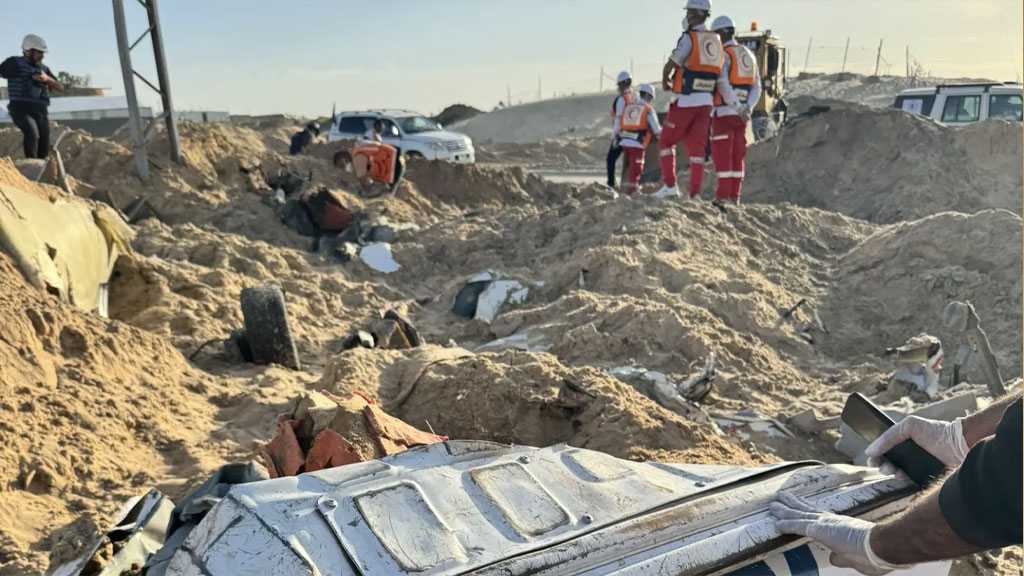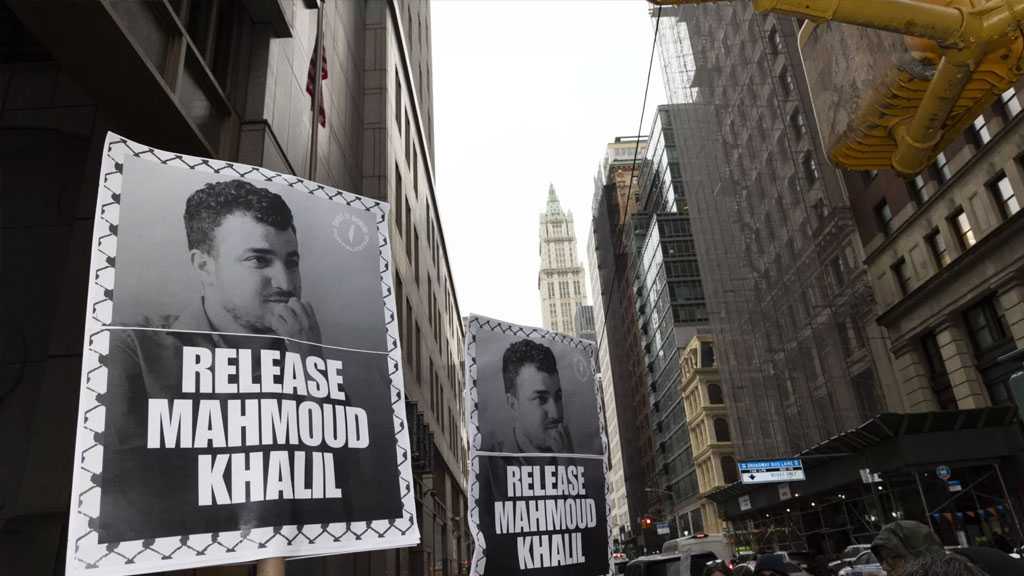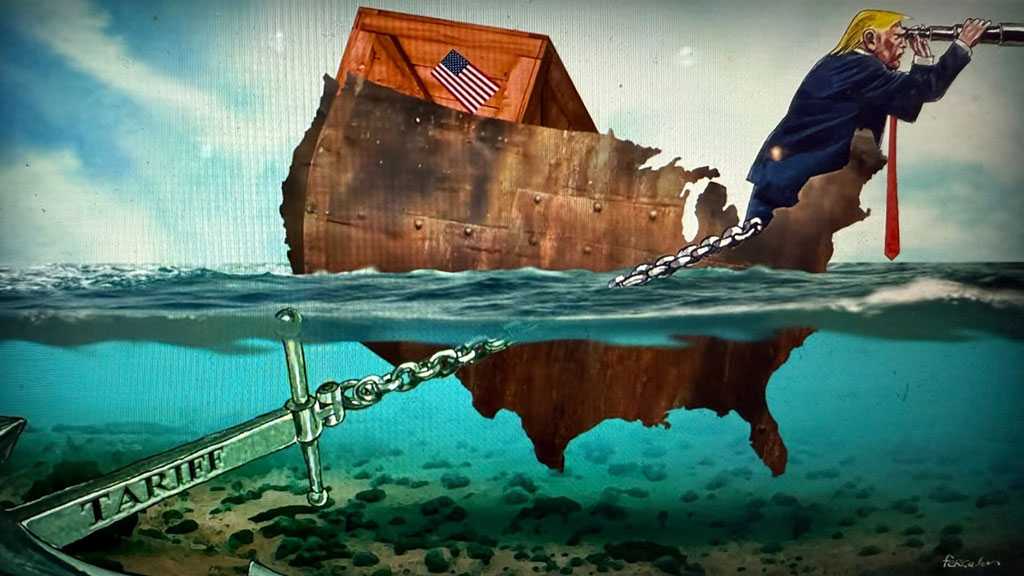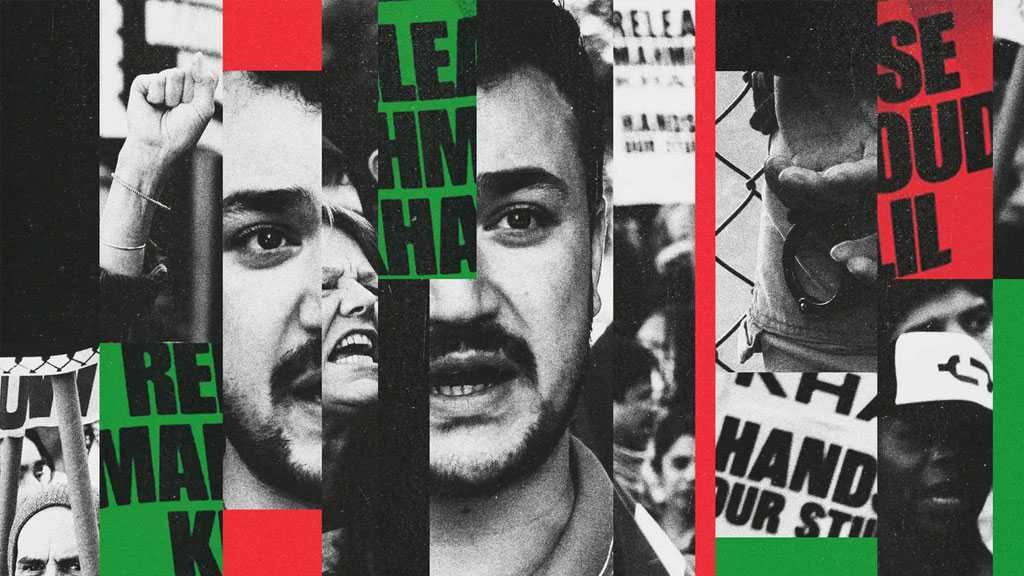
Turmoil in Lebanon

By Stephen Lendman - 16-01-2011
Reportedly, 19th century Mexican dictator Porfirio Diaz once remarked: "Poor Mexico, So far from God, So close to the United States." His proximity comment applies to Lebanon. Bordering "Israel", it experienced decades of belligerent interventions as early as 1954 when "Israeli" Prime Minister David Ben-Gurion proposed supporting the establishment of a Maronite-dominated Christian mini-state.
In 1978, "Israel" attacked Lebanon and occupied the country up to the Litani River before withdrawing under US pressure, letting UN Blue Helmets (UNIFIL) replace its own forces.
Earlier, during Lebanon's 1975-76 civil war, Prime Minister Yitzhak Rabin reportedly spent $150 million equipping and training right-wing Maronite Phalange fighters. In September 1982, during "Israel's" invasion, they massacred thousands of Palestinian Sabra and Shatila camp residents, an appalling atrocity "Israeli" forces permitted when Ariel Sharon was "defense" minister.
On June 6, 1982, "Israel" invaded Lebanon, slaughtering around 18,000 Palestinians, then occupied South Lebanon until withdrawing in May 2000. It still illegally holds Sheba Farms, the 14-square mile water-rich land near Syria's Golan, also illegally occupied since 1967 as well as Ghajar, a Lebanese village bordering Golan.
In July 2006, "Israel" again attacked, killing over 1,000, injuring thousands more, displacing about one-fourth of the country's four million people, besides inflicting the same mass destruction it did to Gaza during Cast Lead.
Earlier in December 1968, "Israeli" forces attacked Beirut International Airport, destroying 13 Middle East Airlines planes in response to an alleged Popular Front for the Liberation of Palestine (PFLP) attack on an "Israeli" airliner in Athens.
Later in 1993, "Israel" launched a week-long offensive against Hizbullah, allegedly in response to rockets launched against an "Israeli" village. During the operation, heavy "Israeli" bombing caused massive destruction and displaced around 300,000 Lebanese. It was a prelude to a similar 1996 attack, again against Hizbullah, during which up to 500,000 Lebanese were displaced.
An early 2007 American University of Beirut study documented 6,672 "Israeli" terrorist acts against Lebanon and Palestine alone from 1967 - 2007, plus thousands more since then.
"Poor Lebanon" indeed, its plight journalist Robert Fisk described in his book, "Pity the Nation: The Abduction of Lebanon." As "Israel's" northern neighbor, it's constantly under threat, especially with Hizbullah a political force, well armed to react in self-defense.
Hizbullah Dissolves Lebanon's Government
Lebanon's elected minority, Hizbullah pulled out in protest on January 12, Al Jazeera headlining, "Lebanese government collapses," saying:
"Lebanon's unity government collapsed after the Hizbullah movement and its political allies resigned from the cabinet over arguments stemming from a UN investigation into the assassination of Rafiq Al Hariri, the former prime minister, in 2005."
On January 12, ten ministers resigned (then an 11th) after Prime Minister Saad Al Hariri (his son) reportedly refused to convene a cabinet meeting to discuss Hezbollah's expected indictment by a UN-back Special Tribunal's (STL) for the killing of his father, Rafik on February 14, 2005.
Without earlier evidence, Hizbullah 's rap sheet includes the 1983 US Lebanon Embassy and Marine barracks bombings, highjackings, hostage taking, rocket attacks against "Israel", suicide bombings, and more, charges the organization vehemently denies, saying it responds only in self-defense against militants, not civilians, its leader Sayyad Hassan Nasrallah stating:
" Hizbullah remains on the US and "Israel" 'terrorism' list for purely political reasons and to punish the organization for its resistance to "Israeli" aggressions against Lebanon and (America's) plans for the region."
Expecting its members to be charged with assassinating Hariri, he accused "Israel" of the crime, presenting visual and audio evidence. It includes real time intercepted "Israeli" surveillance footage of routes he used to be able to target his motorcade, Nasrallah saying:
"We have definite information on the aerial movements of the "Israeli" enemy the day Hariri was murdered. Hours before....an "Israeli" drone was surveying the Sidon-Beirut-Junieh coastline as warplanes were flying over Beirut. This video can be acquired by any investigative commission to ensure it is correct. We are sure of this evidence, or else we would not risk showing it."
He also said an "Israeli" spy "confess(ed) in front of a camera that he had repeatedly tried to falsely convince Hariri that (Hizbullah) intended to assassinate him." Though not a smoking gun, this information warrants serious investigation, especially given "Israel's" history of similar acts, inside and outside the region.
According to Lebanese University Professor Hasan Jouni, an international criminal law expert, Nasrallah's evidence is compelling, saying:
"Logically and legally, in this stage, any new finding should be investigated by the general prosecutor. Sayyed Nasrallah submitted tangible evidence of the "Israeli" potential role in Hariri's assassination." It appears incriminating. "Furthermore, the previous investigations which were circulated here and there should be revised."
Antoine Airout, North Lebanon Bar Association head, agreed, saying: "Sayyed Nasrallah's revelations are very serious and objective," especially given "Israel's" long-term interest in destroying Lebanon to seize portions for itself, especially its water-rich south and offshore oil and gas reserves. Blaming Hariri's assassination on Hizbullah furthers that goal.
In late July, Nasrallah further disclosed the arrest of nearly 100 "Israeli" spies who'd infiltrated Lebanon's military and security sectors, including Ret. Army Brig. General Fayez Karam, once head of its antiterrorism/counterespionage units.
For decades, "Israel", with US encouragement, arms and financing, pursued imperial wars, state terrorism, politically disruptive acts, and assassinations of key figures like Hariri. Incriminating Hizbullah will, in fact, divert blame from where it belongs.
The dispute between the Hariri camp and Hizbullah paralyzed Lebanon's government for months, raising concerns of sectarian violence spinning out of control. Current friction pits Hizbullah against the so-called March 14 coalition, composed of Sunni Muslim parties, Walid Jumblatt's Druze party, and Phalangist Christian groups.
The immediate trigger for dissolving the government stemmed from failure by Syria (supporting Hizbullah) and Saudi Arabia (backing the opposition) to negotiate a settlement, preventing a wrongful STL indictment. Among other concerns is using "false witness" testimonies as evidence to implicate Syria and a group four pro-Syrian Lebanese generals for Hariri's assassination. In fact, a released WikiLeaks cable quoted senior STL judge, Daniel Bellemare, admitting there's "no case" against Syria. Nor against Hizbullah.
Moreover, Druze leader Jumblatt told AFP that "Saad Hariri was on the brink of making a major concession" to soften STL's conclusions, "but occult forces (mainly Washington) prevented him from doing so." Former Energy Minister Jibran Bassil agreed, telling Lebanon's Daily Star:
"The other side bowed to external, especially American pressure, ignoring the advice and wishes of the Saudi and Syrian sides."
Hizbullah Minister Mohammed Fneish said:
"There was an Arab effort which we dealt with positively. We even bargained on it. However, as a result of US interference and the inability of the other side to deal with it, this effort reached a deadlock."
Hizbullah emerged out of "Israel's" 1982 war. On January 25, 1995, the Annex to Clinton's Executive Order (EO) 12947 listed it as a Specially Designated Terrorist (SDT). Then in 1997, the State Department designated it a Foreign Terrorist Organization (FTO), and on October 31, 2001, it was named a Specially Designated Global Terrorist under Bush's EO 13224.
In fact, Hizbullah is a legitimate resistance/political organization, and was part of Lebanon's government until pulling out. Moreover, in a country with no state-provided social services, it's offered an array of its own, including medical care, education, micro-finance, reconstruction after "Israeli" wars and frequent assaults, and other forms of charity.
In 2006, it proved a formidable force against "Israel's" aggression, holding its own against vaunted IDF forces, humiliated by their inability to prevail, no matter how much destruction and slaughter they inflicted.
At "Israel's" urging, Washington declared Hizbullah a terrorist organization like democratically elected Hamas, Palestine's democratically elected government. Both are legitimate resistance/political organizations, not terrorists, but whatever "Israel" wants, it gets.
On June 7, 2009, Lebanon held parliamentary elections. Though Hizbullah got the highest popular vote, the Hariri coalition won a majority of seats. Under the country's confessional system, they're divided equally between Christians and Muslims, even though the latter comprise two-thirds of the population, and Shiites are 40%, mostly in Hizbullah 's controlled south.
America and "Israel" view a Hizbullah -led government a strategic threat. In 2009, conflict might have followed if it won. Both Washington and Tel Aviv back a Hariri caretaker government, and following Hizbullah 's pullout, Haaretz Service, on January 13 headlined, "IDF troops on alert following collapse of Lebanon government," saying:
Forces "stationed in the north were on alert Thursday over worries that the political turmoil....might spill over into renewed violence on their shared border....A senior officer in "Israel's" northern command said commanders were following events....very closely for any sign Hizbullah might try to heat up the already jittery northern border to deflect attention from the political turmoil."
Hizbullah responds only to "Israeli" aggression. It remains to be seen if IDF provocations follow. It's likely if Hizbullah wrests control. However, Lebanon's Daily Star reports Hariri's March 8 Alliance majority may name him prime minister.
A later January 15 report said he seeks dialogue as the only solution, while at the same time blaming Hizbullah and its allies for the collapse of Saudi-Syrian efforts to reach a negotiated solution.
It also said parliament is nearly evenly split with Walid Jumblatt's 12 MPs holding decisive votes. On Saturday, he met with Hariri before planned Damascus talks with Syrian President Bashar Assad.
The Daily Star also reported that March 8 Alliance officials may propose their candidate for prime minister and form a new cabinet without March 14 representation. Akkar MP Hadi Hobeish, however, told March 8 factions that naming its own candidate "will take the country into another direction," suggesting a none too pleasant one.
A January 12 White House statement condemned Hizbullah, stating:
"The efforts by the Hizbullah -led coalition to collapse the Lebanese government only demonstrate their own fear and determination to block the government's ability to conduct its business and advance the aspirations of all of the Lebanese people."
On January 14, US National Security Advisor Tom Donilon said Hizbullah 's intentions have been "laid bare." It will have a hard time presenting itself as a "righteous resistance organization" if it continues trying to undermine "international efforts to find the truth."
Of course, Washington and "Israel" consistently block it in pursuit of their joint imperial agenda. Hizbullah and Hamas remain irritants in the way.
A Final Comment
On January 14, longtime London Independent Beirut correspondent Robert Fisk headlined, "Lebanon in limbo: a nation haunted by the murder of Rafiq Hariti," saying:
"Soldiers, soldiers everywhere. In the valleys, on the mountains, in the streets of Beirut. I have never seen so many soldiers....They are supposed to stop the country (from) sliding into civil war, I suppose."
As early as January 17, "the Hague tribunal of the United Nations will tell us that (Hizbullah members) killed....Rafiq Hariri." America demands it. So does France, Britain and Israel to strike another blow against its effective resistance.
Until resolved, Lebanon has no government. On January 17, President Michel Suleiman will begin formal talks to reestablish one. Fisk calls it "a frightened state," but sees no civil war. It remains to be seen what comes next Tel Aviv and Washington. War seems unlikely, but in a volatile part of the world, nothing can be discounted.
On January 13, middle East analyst As'ad AbuKhalil said he sees little hope in Lebanon for "logical conclusions: they never do." As a result, "expect another lousy compromise to emerge....The absence of a secular alternative ensures (it). We had a chance back in 1976, but (Syria) intervened and prevented the secular leftist outcome of conflict."
"But make no mistake. (Minority interests have) many advantages: the biggest one being the sheer incompetence and ineptitude (of the) Hariri" led March 14 Alliance. However, the real wild card remains what Washington and "Israel" may do if things don't go their way. Belligerence, not diplomacy, is their usual option. Lebanon has many scars to prove it.



